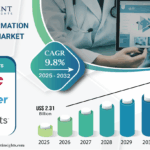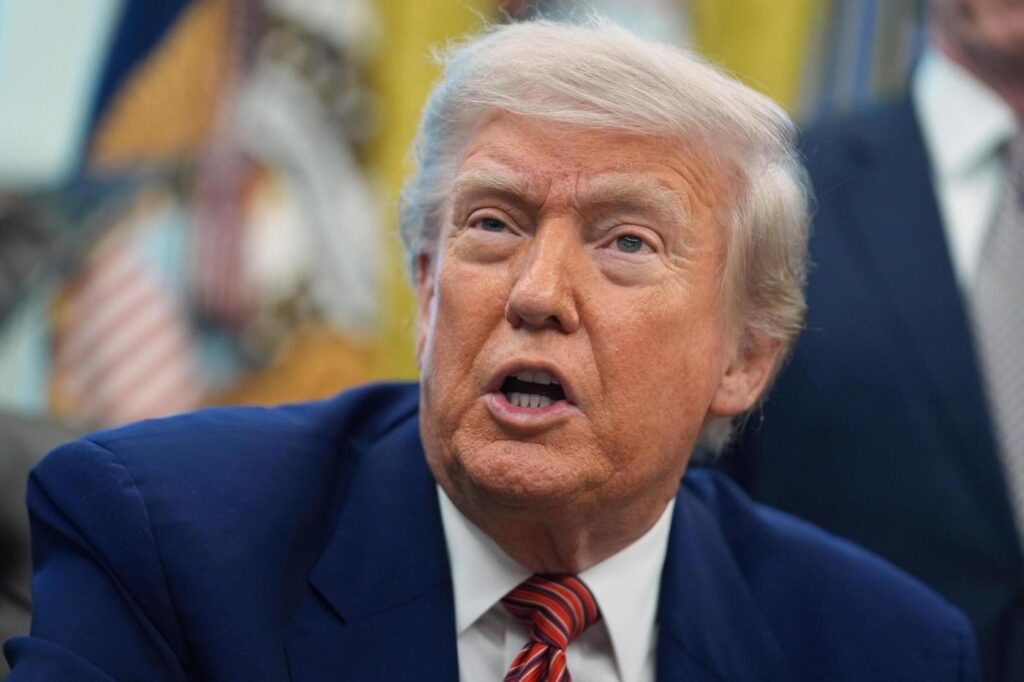WASHINGTON (AP) — A comprehensive analysis by the JPMorganChase Institute has revealed that President Donald Trump’s current tariff plans could impose a direct cost of $82.3 billion on a critical group of U.S. employers. This financial burden may force businesses to consider price hikes, layoffs, hiring freezes, or reduced profit margins to manage the impact.
The study specifically examined businesses with annual revenues ranging from $10 million to $1 billion, which encompass about one-third of the private-sector workforce in the United States. These companies are particularly reliant on imports from countries like China, India, and Thailand, making them vulnerable to the tariffs imposed by the Trump administration. The retail and wholesale sectors are expected to be the hardest hit.
Impact on U.S. Businesses
The findings contradict President Trump’s assertions that foreign manufacturers would bear the brunt of the tariffs. Instead, U.S. companies that depend on imports are likely to absorb these costs. While the tariffs have not yet significantly increased overall inflation, major corporations such as Amazon, Costco, Walmart, and Williams-Sonoma have mitigated immediate impacts by stockpiling inventory before the tariffs took effect.
The analysis arrives just before the July 9 deadline for Trump to formalize tariff rates on goods from various countries. This deadline follows market turmoil triggered by the president’s initial tariff announcements in April, which led to a 90-day negotiation period during which most imports faced a 10% baseline tariff. Notably, China, Mexico, and Canada are subject to higher rates, with separate 50% tariffs on steel and aluminum.
Potential Economic Consequences
Had the initial tariffs announced in April remained unchanged, the companies analyzed would have faced additional direct costs of $187.6 billion. Under the current tariff rates, the $82.3 billion cost equates to an average of $2,080 per employee or 3.1% of the average annual payroll. This average encompasses both importing and non-importing firms.
“The investment bank Goldman Sachs anticipates that companies will pass along 60% of their tariff costs to consumers,” according to a recent report.
The Atlanta Federal Reserve’s survey of business inflation expectations suggests that firms could, on average, transfer about half of their costs from a 10% or 25% tariff without diminishing consumer demand. This indicates a potential rise in consumer prices, adding to inflationary pressures.
Strategic Adjustments and Uncertain Future
The JPMorganChase Institute’s findings suggest that domestic manufacturers might strengthen their roles as suppliers due to the tariffs. However, companies must prepare for various possible outcomes, especially since wholesalers and retailers operate on thin profit margins and may need to pass on tariff costs to consumers.
The future of tariffs remains uncertain, with Trump having paused and then resumed negotiations with Canada after the country abandoned plans to tax digital services. Similarly, the president threatened additional tariffs on Japan unless it increased its U.S. rice purchases.
“People who have been at Treasury, at Commerce, at USTR for 20 years are saying that these are deals like they’ve never seen before,” stated Treasury Secretary Scott Bessent during a Fox News interview.
The Trump administration intends to outline the structure of trade deals in the coming week, prioritizing the recently passed tax cuts package. The president has set a Friday deadline for the approval of this multitrillion-dollar package, aiming to offset its costs with tariff revenues.
As the July 9 deadline approaches, the administration’s ability to navigate these complex trade negotiations will be crucial in determining the economic landscape for U.S. businesses and consumers alike.
 How to Sell Gold in NYC’s Diamond District: Expert Tips for Top Deals
How to Sell Gold in NYC’s Diamond District: Expert Tips for Top Deals Tesla’s Sales Dip Amid Shift to Autonomous Driving Focus
Tesla’s Sales Dip Amid Shift to Autonomous Driving Focus NYT Connections July 2, 2025: Unraveling the Puzzle’s Complex Themes
NYT Connections July 2, 2025: Unraveling the Puzzle’s Complex Themes Affordable Luxury: Top Smart TVs Under ₹70,000 in 2025
Affordable Luxury: Top Smart TVs Under ₹70,000 in 2025 Global Health Information Exchange Market to Surge, Projected to Reach $4.44 Billion by 2032
Global Health Information Exchange Market to Surge, Projected to Reach $4.44 Billion by 2032